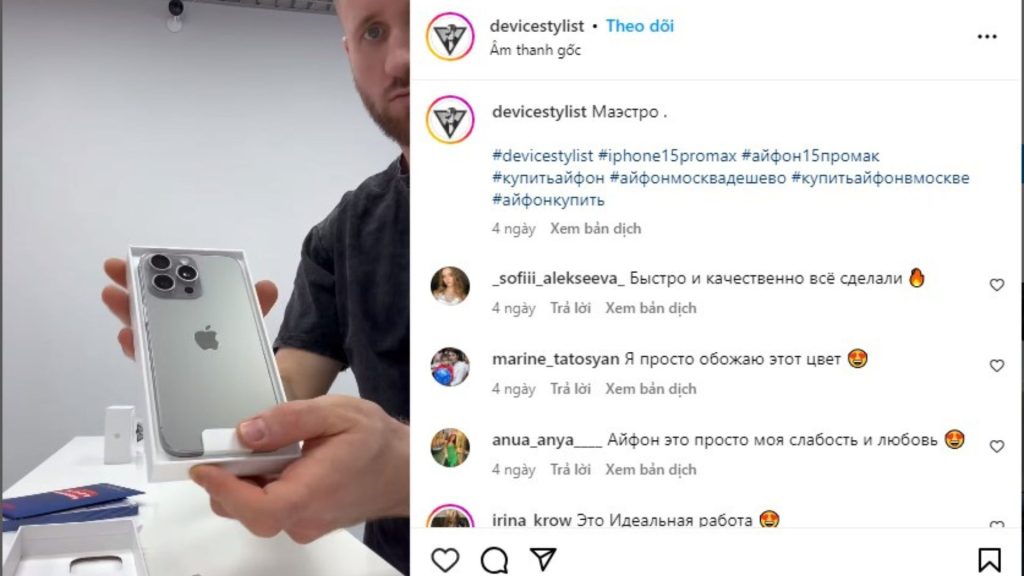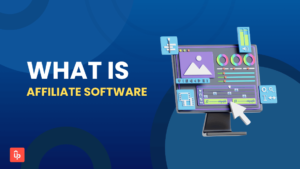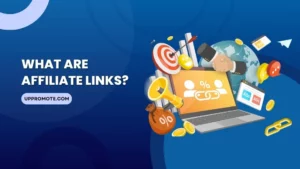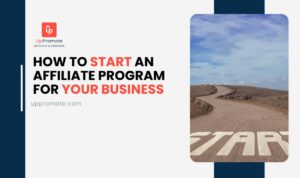Sometimes, unconsciously, when you surf Instagram or watch YouTube, you will probably see lines with the # sign right in the description of each video. Yes, that’s the hashtag. Have you ever wondered what these words are and what they mean?
In this article, we will reveal everything you need to know about hashtags and their types. From trending tags to effective affiliate marketing strategies, embark on a new journey to explore the full potential of #affiliatemarketing in 2026 and beyond.
Let’s explore now!
Understanding Hashtags for Affiliate Marketing

In the vast sea of social media networks, becoming an affiliate marketer can be challenging. You have a great product or service and want to promote it, but how do you make sure the right people see it?
Reality shows that there are people who will like what you have to offer. But it’s not easy for them to find you. It’s frustrating to put in your best effort and not see the results you know you deserve.
Enter hashtags! The characters attached to # are like magic keys that open doors that beckon to your target audience. According to Sprout Social, posts with at least one hashtag average 12.6% more engagement than those without.
Let’s say you’re selling clothes and dresses for plus-size girls. Using affiliate hashtags like #BigsizeOutfit or #curvygirl can attract chubby girls interested in your store.
But that’s not all. Besides attracting the attention of your target customers, using hashtags also helps you connect with others in your related field. By increasing the click rate on your link, you can earn attractive commission rates.
By joining conversations using popular hashtags, like #OOTD or #fashion, you can learn from others, share your experiences, and even collaborate on projects. Additionally, you can interact with potential customers and build relationships that go beyond just selling.
In short, hashtags are your secret weapon in the world of affiliate marketing. They help you categorize content and reach potential customers more quickly. It’s a simple method but highly effective. So, next time you create a post, don’t forget to add some relevant hashtags!
5 Types of Hashtags for Affiliate Marketing & Examples
Of course! Hashtags are classified into many types. Each type has its own characteristics and properties. Below, we have explored, categorized, and explained in detail 5 popular hashtags for affiliate marketing, along with examples:
Product-Specific Hashtags
First, let’s learn about product-specific hashtags. They’re like the tags you attach to your luggage when traveling – they help identify and highlight the specific items you’re promoting. These tags often include the brand name, product name, or model number, making it easy for potential buyers to find exactly what they’re looking for.

Imagine you’re promoting a line of kitchen products as an affiliate. You can use hashtags like #KitchenAidStandMixer or #LodgeCastIron to showcase specific products in your industry.
This way, when there are chefs or housewives looking for those specific kitchen items, your post will pop up. This increases the chances of them making a purchase through your affiliate link.
Some other cool examples:
- #iPhone15ProMax
- #PumaRSX
- #HasselbladX1D
Niche-Related Hashtags
The second type of hashtag is niche-related hashtags. It is not as specific and detailed as product-specific hashtags. This type of hashtag is more comprehensive and broader. Niche-related hashtags are like joining a group or community with common interests. By using appropriately relevant hashtags, you can interact with users who are already interested in the type of product you are promoting.
This creates a vast affiliate network, which increases engagement opportunities and conversion rates.
Let’s say you’re advertising home decor products. You can use hashtags like #HomeDecorIdeas or #InteriorDesign. These affiliate hashtags can help you reach and connect with people who have similar interests in decorating and beautifying their homes.
Some other cool examples:
- #DIYProjects
- #PetLoversCorner
- #TechTrends2024
Location-Based Hashtags
Next, there are location-based hashtags. This type of hashtag is especially suitable for local businesses or products that are geographically related. It helps emphasize the origin of the product while also helping to promote outstanding products in that locality.
You can use location-based hashtags to target audiences in specific areas or cities. This allows you to get closer to potential audiences in your area.
For instance, if you want to market an art museum in Paris. You can use the hashtag #ParisArtScene. This hashtag can help attract tourists to the respective cities.
While this method is highly competitive, it helps you target people who are likely to visit your establishment.
Some other cool examples:
- #ParisArtScene
- #TokyoTechHub
- #SydneySunsets
Campaign-Specific Hashtags
When each marketing campaign is implemented, somewhere you can see hashtags like #EcoFriendlyFashion or #SustainableLiving2024. Yes, it is exactly a campaign-specific hashtag. It’s like creating a special hashtag just for your birthday party.
And, of course, it is limited by the period in which this campaign is carried out. These affiliate hashtags are designed for specific promotions, contests, or affiliate marketing campaigns. They help track campaign performance, engage your audience, and encourage user-generated content.
To clarify this type of hashtag, let’s look at the following example:
Let’s say you’re partnering with a cosmetics brand to promote their new skin care product line. You decide to launch a campaign-specific hashtag: #GlowingSkinGoals. This hashtag becomes the focal point of all your promotional efforts, from social media posts to email newsletters. Such as Instagram posts, Instagram stories, or Instagram photos.
You encourage your audience to use #GlowingSkinGoals when sharing their skincare routine, posting product selfies, or participating in a skincare challenge you host. This hashtag helps you track your campaign’s success and creates a buzz around the brand, encouraging more people to participate and share their experiences.
Some other cool examples:
- #HomeOfficeHacks
- #GreenLiving2024
- #FashionForward2024
Branded Hashtags
Finally, to get your audience excited about sharing their stories, you can use unique, branded hashtags. This ignites a vibrant community spirit and fosters brand adoration.

And here is a typical successful example of a branded hashtag. That’s #NetflixAndChill. The phrase seems very simple but brings unexpected success. They cleverly integrated their brand into their campaign.
Also combined with “chill” is a common term for enjoying entertainment, making it understandable to many people. And because users create more content with it, hashtags increase brand visibility and credibility.
Some other cool examples:
- #Microsoft365Life
- #CocaColaRefresh
- #StarbucksMoments
Depending on the characteristics of each marketing campaign, marketers will choose appropriate hashtag types. However, for maximum effectiveness, it is recommended that you incorporate these different types of hashtags into your affiliate marketing strategy or affiliate program. This can significantly enhance your reach, engagement rate, and conversion rates.
Benefits of Using Hashtags for Affiliate Marketing
When it comes to affiliate marketing business, leveraging hashtags can provide countless benefits. Here are several notable benefits of using affiliate hashtags for affiliate marketing:
Increased Reach
A big advantage of using hashtags in affiliate marketing is that they help increase the visibility of your content. At this point, the hashtag acts as a key, and it opens up larger conversations and communities on social networks.
By making smart use of relevant hashtags in your posts, you can join ongoing discussions and expose your linked content to a potential audience.

Imagine you’re promoting sustainable fashion as an affiliate. Incorporating hashtags like #ecofashion, #sustainablestyle, or #ethicalclothing can work wonders. These hashtags connect you with consumers who care about the environment. Even though they may not know you yet, this helps you expand your audience and increase your sales opportunities.
Targeted Audience

Hashtags are like magnets; they help attract users who are actively searching for products or topics related to your niche. By using market-specific hashtags, you can ensure your content is visible to potential audiences. This approach increases engagement and conversions.
Take, for example, a beauty brand. You are intending to advertise this brand. Instead of messing around with how to let your audience know about them, you can incorporate hashtags like #beautyblogger, #makeupaddict, or #skincarejunkie. They can help you connect with users passionate about cosmetics and skin care products.
Brand Awareness

Plus, using hashtags consistently helps you establish and strengthen your brand presence. By launching unique and interesting hashtags related to your brand, followers can more easily identify and engage with your content. Over time, this will drive increased brand recognition and audience loyalty.
For example, you’re a fitness influencer, and you’re promoting a healthy snack brand. You create a unique hashtag like #FitFamSnacks to accompany your posts featuring products and fitness tips.
When followers use this hashtag, it becomes associated with your brand, leading to higher brand recognition and loyalty among your audience. Then, consumers will be more aware of your brand.
Engagement

Furthermore, hashtags are also helpful in driving engagement with your linked content. Incorporating interesting hashtags helps keep users engaged. Your targeted audience can read, like, comment, and share your daily posts.
Sometimes, it can lead to direct engagement with your affiliate links. This leads to potential sales and conversions.
Let’s explore the following example to clarify this point.
Suppose your brand has just launched product lines related to backpacking (specifically travel equipment). To drive engagement with your audience, incorporate hashtags like #WanderlustWednesday and #TravelEssentials into your posts.
It seems very simple, but it brings remarkable results. These hashtags not only attract individuals who are passionate about travel but also encourage them to engage with your content actively.
Strategies for Choosing Effective Hashtags?
Choosing the right hashtags to maximize the effectiveness of your affiliate marketing efforts is no easy task. Let’s explore some strategies for choosing the right hashtags:
Relevance
Relevance is key when it comes to hashtags. It would be best if you used exact-match hashtags that are specifically relevant to your niche and the products you are promoting.
For example, if you work in the technology industry and promote technology products, you could include hashtags like #TechTrends2024 or #SmartDevices2024. Obviously, these hashtags are highly relevant, so they are likely to attract users interested in the products you advertise.
Popularity
It’s a fact that popular hashtags (high reach) offer a wider reach, potentially exposing your content to a wider audience. However, it will make it difficult for you to stand out in a sea of content. In contrast, niche-specific hashtags can have a smaller reach but target a more engaged and relevant audience.
Therefore, to maximize your marketing efforts (whether you act as a merchant, brand owner, or content creator,) you should create a balance between both types of hashtags.
This ensures that your content will connect with the right target while taking advantage of the visibility provided by popular tags. Therefore, your brand and business will be one step closer to your audience
Competition
Keeping an eye on and analyzing the hashtags your competitors use is always a good idea. From there, you can understand industry trends.
Try to develop some unique hashtags to differentiate your brand and content from other competitors in your industry. This difference not only helps you stand out and impress the audience more. Additionally, it helps your audience recognize your brand and feel authentic.
Research Tools
Hashtag ideas are everywhere. Social marketing platforms are also a great place to find hashtags that fit your campaign. The hashtag generator is also a destination worth considering if you want to immediately have unique hashtags to attach to your Tiktok posts.
Additionally, platforms like Hashtagify.me or Sprout Social can be invaluable resources for discovering hashtags relevant to your niche. These tools provide valuable insights into hashtag popularity, trends, key metrics, and related tags. It helps you make informed decisions about which hashtags to incorporate into your content strategy.
Volume
As affiliates and social media managers, consider the average number of hashtags per post (including paid and organic posts). If there are too few hashtags, your audience may be too small to pay attention. Too much of your content can get lost in the crowd.
So use them wisely, like seasoning a dish – not too much, not too little, just enough to make your content stand out!
This way, you can effectively increase the visibility and discoverability of your posts. Thereby maximizing engagement and driving interactions with your audience.
Brand Alignment
Make sure the hashtags you use fit with your brand image and resonate with your target customer. Choose hashtags that reflect your brand values and target audience. Personalized lists include your audience’s personality and interests as well as demographic information.
When hashtags align with your brand, you’ll attract people who are on the same wavelength as you – they’re the ones who will follow your content and may even become loyal customers of their own volition.
So, choose your hashtags wisely, just like choosing the perfect background music for your brand’s digital party!
Best Practices for Using Hashtags
Hashtags are like the magic wand of social media, helping you and your potential customers discover each other in the vast universe of digital marketing. But hey, to make things easier, check out these great tips for using hashtags:
- Don’t Overload: More is not always good. You should limit the list of hashtags displayed on each post to avoid spam.
While platforms like Instagram allow up to 30 hashtags per post, you should typically use between 5 and 10 hashtags. This helps the article look neater and cleaner. In addition, the size hashtags should be short and easy to understand. It should not be too long to avoid confusing viewers.
- Placement: Place hashtags wisely in your content. This helps you maximize their effectiveness. You can put them in the post, video description, or comments section. Experiment with different placements to see which delivers the best results for your audience.
- Track Performance: After creating and placing hashtags, it is essential to track the effectiveness of each hashtag. You can review the engagement and conversion rates of your posts.
Additionally, you may use analytics tools provided by social media platforms or third-party applications. This will save more time and effort. This data will help you determine which hashtags are most effective.
- Adapt and Experiment: Regularly analyze hashtag performance and be ready to adjust your affiliate marketing strategy based on the results. User trends and behaviors constantly change over time. Therefore, it is essential always to adapt and test new hashtags. From there, consider what works best for your audience.
FAQs
- What hashtags to use for affiliate marketing?
On search engines, you can find many different types of hashtags to use for affiliate marketing. But remember, only choose hashtags that are relevant to your niche, target audience, and campaign goals.
An example of a hashtag that is commonly used by affiliate marketers is: #AffiliateMarketing, #AffiliateProgram, #DigitalMarketing, #PassiveIncome, #WorkFromAnywhere and more.
- What hashtags attract customers?
Each target audience will have its own needs and interests, but most people are attracted to things that are new, surprising, or curious. For example, discount events, giveaways, new collection product launches, etc.
The following are a series of hashtags that can attract a large audience. Let’s look at a few examples: #LimitedEdition, #ExclusiveOffer, #DealOfTheDay, #NewArrivals, #CustomerFavorites, #MustHave, and more.
- What hashtags to use for marketing?
Similar to the affiliate marketing field, the marketing field also has prominent hashtags. They are widely recognized and covered. For example: #Marketing, #DigitalMarketing, #SocialMedia, #ContentMarketing, #OnlineMarketing, #BrandBuilding, #Advertising, #SEO
- What are the 3 main types of affiliates?
Normally, branches will be divided into 3 types. Includes content affiliates, coupons codes and deals affiliates, and influencer affiliates. Each type of branch plays a unique role. However, the general purpose is to drive traffic and sales for affiliate marketing programs.
Content affiliates create valuable content like blog posts or videos on Instagram and Facebook. Coupon and deals affiliates specialize in sharing discounts and offers with their audiences. Influencer affiliates leverage their social media influence to endorse products and drive sales.
Conclusion
In short, think of hashtags as neon signs on the internet highway. It drives your audience straight to your brand’s doorstep and the amazing products or services you’re offering. When used skillfully, hashtags can be your reliable assistant.
You’ll find that expanding your market reach and enhancing your brand’s street cred is not as difficult as it seems.
So, if you’ve been hesitant about using hashtags up until now, it’s time to get started! Don’t be shy—start adding those hashtags to your posts and watch the magic happen. Keep in mind, however, that not all hashtags are the same. Remember to choose the right hashtags for your affiliate marketing campaigns for maximum effectiveness.







